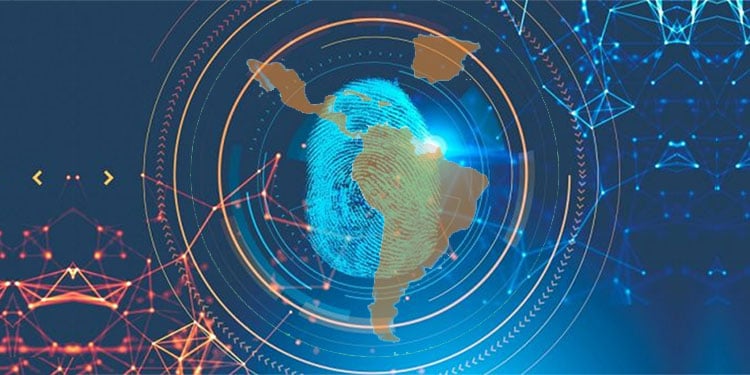Contents
Key facts:
A study says that in Latin america there has been progress, but there are still limitations for its development.The region in general is lagging behind in comparison with countries of Europe and north America.The second edition of the report “The ecosystem of Digital Identity distributed in the ibero-american world in 2020″ points out that there are four elements that are holding back the development and implementation of projects of this type in the region. The researchers indicate that there are global aspects, and economic understanding of the technology that must be addressed.The report says that the challenges facing the projects of digital identity decentralised (Self-Sovereign Identity, SSI) first undergo the disconnection that exists between the world blockchain with the world SSI, the rigid view of the status quo (governments, institutions), technological innovation such as marketing and the lack of a support network to finance projects of SSI.The first two aspects to work can cover not only the Latin american countries, but that have worldwide implications, while the use of marketing to the innovation and the lack of economic support are regional challenges.One of the authors of the research, Alex Preukschat said to Breaking News that to agencies, traditional costing them assimilate a little bit this kind of ideas, how to monetizarlas and how to control them in some cases. The also entrepreneur sees that what happens in the communities blockchain, and the companies and governments, is that they do not participate very actively with the community of digital identity autosoberana because they lack such knowledge, yet.”The projects blockchain public as Bitcoin or Ethereum still without understanding in depth how it works the ecosystem of the digital identity decentralized and what are the principles that direct it. There is a gap that has to close for part of the community. There is a very large interest from governments and companies for the digital identity decentralised, but there are also difficulty to implement it because it is in their initial phases,” explained the author of this paper.For Preukschat there are interesting proposals in the region as the project DIDI the Fundación Bitcoin Argentina and the initiatives of the inter-American Development Bank as the LACChain ID that, according to the report, seeks to provide identification and authentication at all levels following the international standards of digital identity sovereign. On A global scale, highlighted the project uPort group ConsenSys on the blockchain Ethereum.In Spain there is the case of Alastria, as a cluster blockchain, in which some of their businesses benefit from the access they have to funding and initiatives of the European Union and the European Commission, he added Preukschat. In relation to the most developed countries in this regard he cited Canada, united States, United Kingdom, Netherlands, Germany and Switzerland.
Establish structures
A first step to reverse this scenario in Latin america is to establish structures that encourage the development of proposals among the enthusiasts of this technology. The non-existence of a string in order to obtain funding, there is a mass of entrepreneurs with ideas that design alternatives for the management of the digital identity decentralized.”There are many initiatives for minority and proof-of-concept in the region. In the field iberoaméricano we are far from being leaders in some sense,” stressed the researcher. The report indicates that many of these developments have been stuck in a vision of architecture that tries to apply the blockchain to too many concepts, without understanding the complexity and richness existing in the world SSI.A second transformation that must occur is the large corporations and governments. In the report it is pointed out that they tend to look at problems through the prism of centralization that in many occasions can prove to be “too hard for a transformative technology”.The researchers conclude that the SSI represents a global opportunity in technology, but that its ecosystem is still immature in all the world, which could open the door to future opportunities.The sovereign identity is a form of digital identity that the user is who has control of your information. That is to say, the person has the power to decide who may have access to such data and under what conditions. It is a decentralized service, in which the blockchains appear as potential drivers of this type of platforms.In the first edition of the report were presented to 20 projects of digital identity decentralized in Latin america, with development plans in Spain, Portugal, Brazil, Mexico, Argentina, Colombia, Peru, Chile, Uruguay and Costa Rica.

